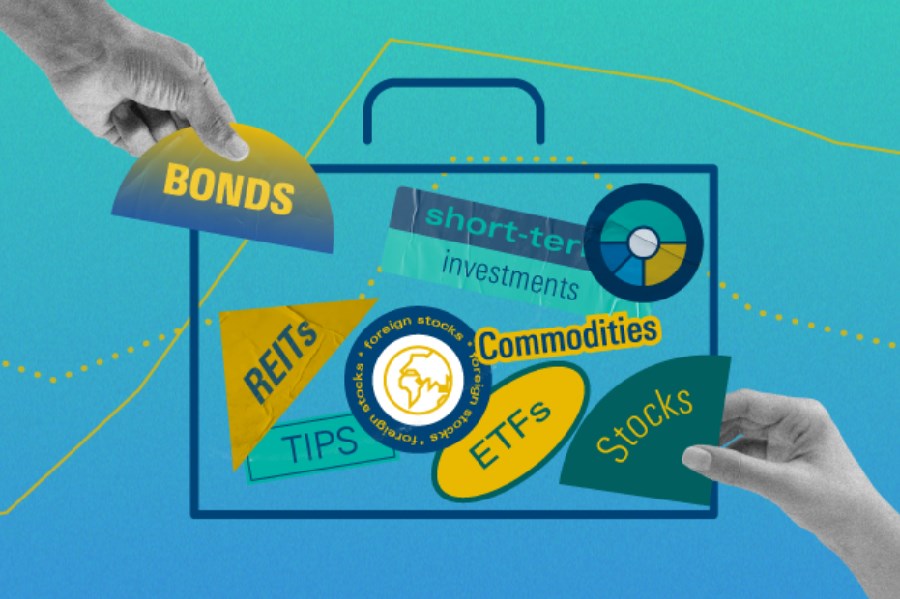
Markets may reward some companies and punish others, and then do the reverse, thus plunging investors into doubts about their choices. Yet veteran stock picket Conrad Dabiet argues it’s more prudent to focus on individual companies, their cultures and business models, rather than shift strategy to comply with the market’s moods. Indeed, for the past eight months or so that’s been a test for Dabiet and his team that oversee the $933.7 million 4-star gold-rated Manulife US Dividend Income F.
“In November 2020, we had two big things happen. One was the U.S. presidential election and second, the surprise news on the vaccines. Both of those were big market-moving events,” says Dabiet, senior managing director at Toronto-based Manulife Investment Management Inc., who has been with Manulife since 2003 and lead manager of the fund since 2015. He joined Manulife after he earned a Bachelor of Commerce degree from Queen’s University. “We got more certainty about the rollout of the vaccines in the New Year and the run-off election showed that the Democrats had control of Congress. That gave the market much more confidence. It showed up in [rising] bond yields and commodity prices rallied tremendously. Economists gave very optimistic views on GDP growth.”
The Next Chapter
That view peaked in March, however, and since then there is talk of central banks removing stimulus measures and cyclical names have lost some of the lustre they attracted in the spring. “From a stock market view, [the change in markets] brought many of the companies that we own back into focus. These are companies with very durable business models that can really thrive throughout the economic cycle,” says Dabiet, who shares duties with Chris Hensen, managing director and senior portfolio manager. “The market is starting to shift its gaze into 2022. We think the economy can continue to grow. But the rate of change of both growth and inflation potentially peaked in the first half of 2021. The market is discounting a different environment next year.”
Based on analysis of the fundamentals, Dabiet believes many companies in the portfolio have been able to increase market share, become more efficient and productive and execute acquisitions in the last 16 months. “It’s transitioning into more of a stock-picker’s market which hopefully favours some of our positions.”
In 2020, Manulife US Dividend Income F returned 21.43%, versus 12.84% for the U.S. Equity category. On an annualized basis, the fund returned 17.59% over three years and 15.45% over five years. In contrast, the category returned an annualized 13.12% and 13.71% respectively. Year-to-date (July 20) the fund has returned 13.74%, versus 13.71% for the category.
Focus on the Fundamentals
Dabiet acknowledges that if any lessons can be derived from last year’s market tumult it is that opportunities can present themselves at the worst of times, especially with initial public offerings and follow-on equity issuance by established players. “If you turned away last April or May you missed a tremendous period to invest where returns were really the most attractive,” says Dabiet. “We make sure that we do our homework and understand our companies. We do this so that we can stay invested. Sometimes when things seem most rosy on the front pages of the newspapers that might not be the best time to invest. And when things appear to be most dire, those times are some of the most opportunistic times to invest.”
Although Dabiet's team spends much of its time and effort on quantitative analysis, an equal amount is devoted to qualitative analysis that separates winners from losers. “We’re looking for companies with strong business characteristics and those that are led by management teams that we can have confidence in, especially in tough periods. That’s whether it was March 2020 or the first quarter of 2021. It’s about picking good companies but also making sure we stay invested with them. That’s how we reap the rewards of our process.”
From a sector perspective, technology dominates the portfolio as it accounts for 25.4% of the fund, followed by 19% industrials and 13.8% financials. Yet these weightings are a by-product of the stock-picking and portfolio construction process, Dabiet explains. “We focus on diversifying by business risks. Sometimes it is at a sub-sector level. So we may have 19% in industrials, but there are many different types of businesses so we get diversification benefits. The same holds true with technology. It includes semi-conductor suppliers and software producers.”
The portfolio has about 165 holdings, yet the top 20 account for about 60% of the fund, while the remaining 145 holdings are small positions and there for evaluation and diversification purposes. The fund’s running yield is about 1% before fees.
U.S. vs. Canadian Dividends
Dabiet points out that a dividend fund based on U.S. holdings faces different challenges than dividend funds based on Canadian holdings. That is, Canadian investors are accustomed to the banks and telecom firms paying 3-4% dividend yields. In contrast, Dabiet argues, U.S. high-paying dividend stocks have not fared as well as the broader market.
“Typically you find that these businesses are much more mature, in slower growth industries or even facing secular challenges. In the U.S., we want to make sure we strike the right balance deriving income. We want to protect and grow capital over time,” says Dabiet, adding that the team has focused on the so-called hybrid market of convertible preferred shares or convertible debt to source income. “We took advantage of the opportunities in the U.S. convertible debt market in the spring of 2020. We wanted to drive yield, but also protect capital. The potential for performance and capital appreciation was quite great. That was a once-in-every-20-years opportunity in the convertible debt market.”
While many of the top holdings are in very different businesses they share a hard to quantify attribute that speaks of a company’s ability to drive a so-called virtuous circle. “There are elements in their culture that are self-reinforcing. Success drives more success. During the height of the pandemic last year some of these businesses gained a lot of market share.”
One classic example is Thermo Fisher Scientific Inc. (TMO), a Waltham, Mass.-based firm, with annual revenues of US$33 billion, which specializes in providing scientific instrumentation, reagents, consumables and software to the life sciences industry. “We don’t have to make a bet on any specific drug or medical breakthrough. They’re supplying the industry. As it has grown in the last year, Thermo has benefitted from that. They have an amazing history of growing organically and through acquisitions,” says Dabiet, adding that in April Thermo Fisher signed a US$17.4 billion agreement to acquire PPD Inc. (PPD), a leading clinical research organization. The holding has been in the fund for five years.
Thermo Fisher, which has a dividend yield of 20 basis points (bps), is trading at about US$522 a share, or a price-earnings multiple of 23 times forward earnings. Although the dividend yield is low Dabiet notes that the share price has more than doubled in the past three years. “Their stock keeps going up, which means the yield stays low.”
Another favourite is Cintas Corp. (CTAS), a Cincinnati-based provider of uniforms, mats and cleaning supplies to a variety of industries. “It’s a very fragmented industry so there is lots of room to gain market share,” says Dabiet. “And they’ve done that both organically and through acquisitions." Cintas, which has a dividend yield of 78 bps, is trading at 36 times 2022 earnings. The share price in mid-July is US$385, compared to US$107 in July 2016.























